Are you ready to take your RV adventures to the next level with some power backup? Energy and power backup provide comfort, convenience, and peace of mind, whether you’re going on a cross-country road trip or setting up camp at a secluded, out-of-the-way location. Diesel generators for RVs have become the working options for those travelers demanding performance and durability. This article will explain why diesel generators are the ultimate power source for RV adventurers by examining their specific benefits, uses, and criteria for choosing the optimal generator based on their needs. Get ready to power your adventure with confidence!
Introduction to RV Diesel Generators
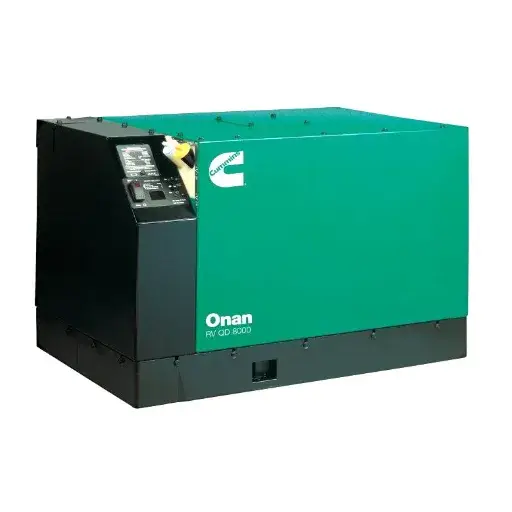
RV diesel generators are a specialized power supply system designed to provide reliable electrical power to recreational vehicles. These systems are greatly valued for their durability, fuel efficiency, and ability to sustain high-power demands. While any other general-purpose generator can work, diesel models, in particular, are engineered for long-term service. They can be run for long hours and kept at a low operational cycle, making them great for camping in seclusion or long traveling periods. Another advantage is that diesel is less flammable than gasoline, which is a significant safety benefit. Given these features, RV diesel generators are a good buy for people looking for a reliable and efficient power solution on the road.
The Growing Need for Reliable Power in RV Travel
The more people who have adopted the RV lifestyle, the greater the demand for effective power solutions for RV travel. In actuality, the latest data depict a surge in searches for “best RV generators” and “RV solar power solutions,” thus establishing a genuine interest in reliable energy sources. The reasons for such growth include the incorporation of modern conveniences into RVs, such as air conditioning, smart appliances, and entertainment systems, which require a steady source of power. The travelers want to choose reliable options for their off-grid ventures to remain comfortable and sustainable. Out of necessity, a wide array of technologies led to the popularity of diesel generators and solar panels as some of the best and most enduring choices to address this ever-changing need.
The Role of Diesel Generators in Enhancing Comfort
Diesel-powered generators ensure that the RV operation remains smooth and comfortable. Many travelers prioritize reliable power sources to operate crucial systems such as heating, cooling, and kitchen appliances, in accordance with evolving search trends. Diesel generators are most efficient in terms of long durability and steady power output, even at distant locations. Their generator’s sound is suitable for extended off-grid use, minimizing downtime due to power interruptions. On the other hand, modern diesel generators have been constructed with attention to pollution and acoustic values: minimizing these concerns presents a challenge for performance and sustainability. Diesel generators suit RV enthusiasts who desire freedom and comfort during their travels.
Key Benefits of Diesel RV Generators
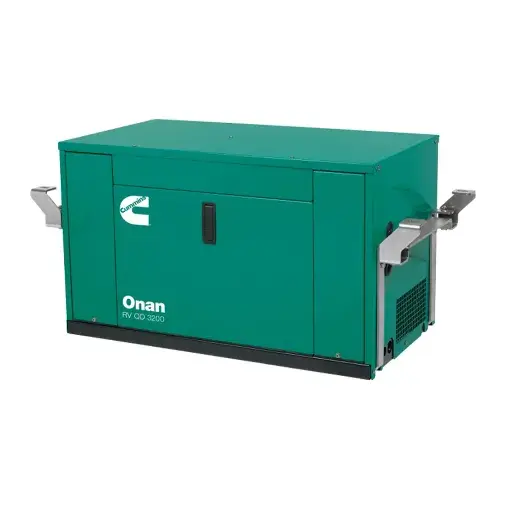
- Reliable Power Supply
Diesel generators have always been known for their dependable service, providing consistent electricity for appliances and devices in remote locations. - Fuel Efficiency
Diesel engines, by contrast, use less fuel than any other generator, allowing for longer operation without as many refueling stops. - Durability
Built to last, diesel generators withstand harsh conditions. This makes them perfect for long-term use. - Lower Maintenance Needs
Diesel generators generally require fewer maintenance periods because there are fewer moving parts to wear out. - Improved Environmental Standards
Modern diesel generators have lowered emissions and noise levels. They now provide top-notch performance while being environmentally friendly.
Durability and Longevity of Diesel Generators
Diesel generators enjoy a reputation for durability and long life. Being resiliently built using hard steels and a rugged design, these generators can roll into harsh regions with extreme temperatures and heavy-duty applications, and frequent use. According to recent data, many diesel generators can run 10,000 to 30,000 or more hours with proper maintenance, far beyond the limits of other types of generators. Practical inspection, adequate oil change, and good-quality fuel will really extend the life of a diesel generator. Their reliability and extended life make them trusted choices for industries that require a continuous supply of power.
Power Output Capabilities for RV Appliances
The output power capacities of RV appliances vary greatly depending on the specific type and size of the appliance and the power system inside the RV. Low-wattage devices like LED lights and phone chargers might consume only so many watts, while microwaves and air conditioners can use anywhere between 900 and 2,000 watts. Most RVs are equipped with an on-board generator or a solar power system capable of providing enough wattage to run the appliances simultaneously, provided that the energy demands are effectively monitored and controlled. Careful consideration must be given to the energy requirements of each appliance to avoid overloading the power system, which could hamper your activity while in transit.
Comparing Diesel Generators with Other Power Sources
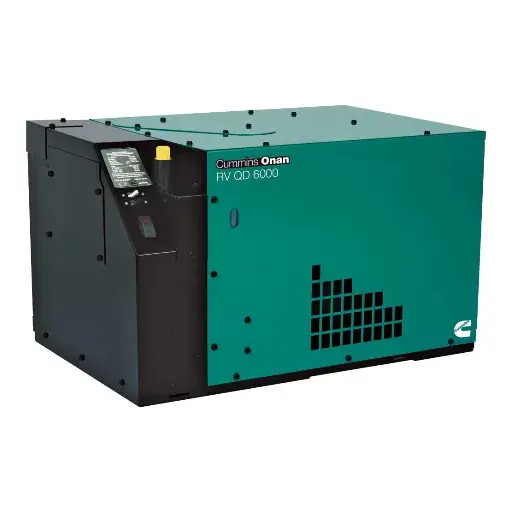
Diesel generators are considered reliable systems for their durability and efficiency. With diesel generators being comparatively less fuel-consuming than their gasoline counterparts and having longer working lives, they tend to be more cost-effective over the period. However, they are louder and heavier. Solar setups, in contrast, constitute the clean, quiet alternative, right? But they depend heavily on weather conditions and require huge capital investment. Being cleaner and more peaceful, inverter generators may fall short of the output levels of diesel generators. The ultimate selection depends on your energy needs, budget, and priorities such as portability, noise level, or environmental considerations.
Diesel vs. Gasoline Generators: A Comprehensive Look
When choosing between diesel and gasoline generators, understanding their differences will help one make an informed buying decision. Diesel generators tend to be fuel-efficient and durable, often outlasting gasoline generators. They fare well in heavy-duty usage and continuous operation on job sites or during extended outages. However, depending on the area, diesel generators tend toward higher initial costs and lower fuel availability.
Gasoline generators, by comparison, have a lower price at the outset; given their lighter weight, they also provide more portability. Gasoline is typically easier to find, so these generators are convenient for temporary applications or emergencies. Fuel-wise, they have less mileage and may also require frequent maintenance due to rapid wear and tear affecting the engines. Gasoline, however, has a more limited shelf life than diesel, which should be considered if one is storing gasoline for a long time.
Diesel vs. Propane Generators: Pros and Cons
Here’s a concise comparison table of Diesel vs. Propane Generators based on the latest trends and insights:
| Parameter | Diesel Generators | Propane Generators |
|---|---|---|
| Fuel Efficiency | High, ideal for long trips | Moderate, burns faster than diesel |
| Power Output | High, suitable for heavy-duty appliances | Moderate, less powerful for large loads |
| Durability | Long lifespan with proper maintenance | Shorter lifespan compared to diesel |
| Noise Levels | Quieter with advanced models | Generally quieter than older diesel models |
| Eco-Friendliness | Cleaner emissions in newer models | Cleaner burning, lower carbon emissions |
| Fuel Availability | Widely available at gas stations | Requires propane tanks, which are less accessible |
| Cost of Fuel | Typically cheaper than propane | Higher cost, especially in remote areas |
| Startup Reliability | Reliable in cold weather | May struggle in extreme cold |
| Maintenance Needs | Regular oil and filter changes are required | Minimal maintenance, no oil changes needed |
| Storage Safety | Stable, less flammable than propane | Highly flammable, requires careful handling |
| Portability | Heavier, less portable | Lighter, easier to transport |
| Initial Cost | Higher upfront cost | Lower upfront cost |
| Best Use Case | Long trips, heavy-duty power needs | Occasional use, eco-conscious users |
Choosing the Right Portable Generator for Your RV
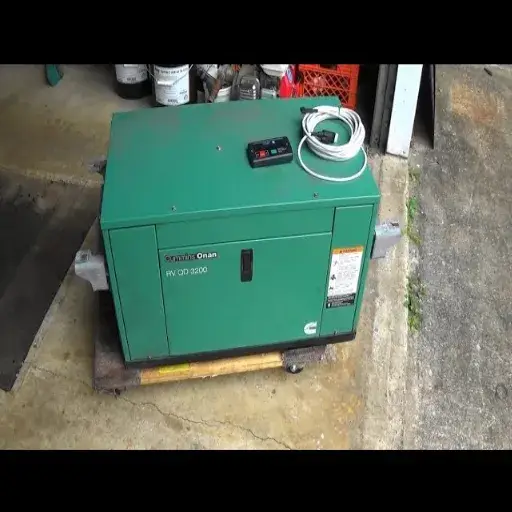
When choosing the right portable generator for your RV, consider the power needs, your budget, and how you usually use the generator. Long trips with heavy electrical loads will require a reliable and fuel-efficient gas generator. However, if you tend to use a generator rarely and wish for green, quiet, cheap-to-buy options, a propane generator is the way to go. Consider weight and portability, especially if the generator will often be on the move. Thus, the final decision is valid when power meets practical considerations.
Assessing Your Power Needs for RV Appliances
While correctly knowing the energy requirement of your RV, one must figure out the wattage required by each appliance that will be used. First, create an exhaustive list of all the major appliances and devices, including air conditioners, refrigerators, microwaves, lighting, and electronics. Next: Check the wattage ratings against the label or in the user manual. Do bear in mind that either a surge wattage or surge surge power is required during startup for appliances like air conditioners with varying power demands. Now, sum the wattage of all devices that you plan on using at the same time for an approximate estimation of your power requirements. From this value, you’ll now know whether your generator set and power sources can handle the load or not.
Noise Levels and Advanced Features to Look For
The noise level of the generator must be considered while selecting it, especially if one intends to employ it in residential areas or while camping outdoors. Many contemporary generators come fitted with the latest noise-reduction features, such as sound-insulated enclosures or mufflers that reduce the level of sound. Choose a generator with a noise level rating of 60 decibels (dB) or less for quieter operation.
Advanced features can significantly enhance usability and efficiency, as well as reduce noise levels. Automatic start is an important feature that allows the generator to turn on when there is a power outage. Fuel-efficiency modes, such as “eco-mode,” modulate engine speed in accordance with power demand for lower fuel consumption. In addition, other trendy options include digital displays to monitor power usage, USB ports to charge cell phones and other small electronic devices, and solar panel compatibility. Noise levels and advanced features should be considered together to buy a generator that is practical and convenient for your use.
Maintenance Tips for RV Diesel Generators
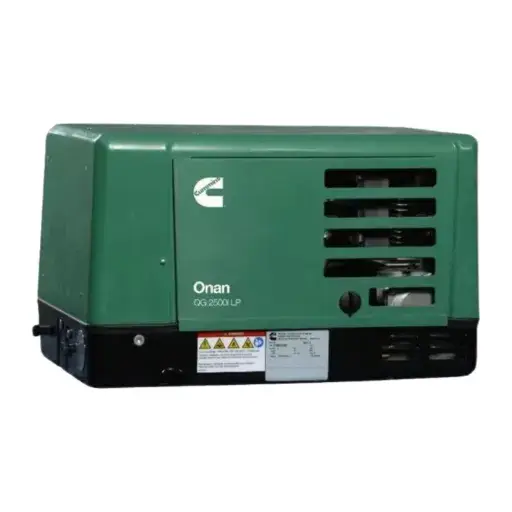
- 1
Regular Oil Changes
Performing oil changes on time per your manufacturer’s recommendation will ensure smooth operation and increased life of the generator. Check the oil level often and top it off if needed. - 2
Replace the Air Filter
Ensure the air filter is cleaned or replaced regularly to prevent the system from getting clogged with debris and to ensure proper airflow. - 3
Inspect the Fuel System
Regularly check for fuel leaks and ensure the fuel lines are not cracked or damaged. Replace fuel filters as specified. - 4
Run the Generator Regularly
Operate the generator at least once a month under load to keep the components lubricated and prevent buildup. - 5
Check Coolant Levels
If the generator uses coolant, ensure the reservoir is at the correct level and topped off as needed.
The Importance of Regular Oil Changes
When it comes to keeping a generator’s engine in good health and truly running smoothly, oil changes should indeed rank high on the maintenance scales. Over time, engine oil, like all other fluids, will become unfavorable due to impurities, failing to lubricate the metallic surfaces of the moving mechanism effectively. The consequence of this misbehavior will be to build up friction, which will hinder the generator’s performance and possibly cause long-term damage. Timely oil changes at prescribed intervals ensure the engine’s lubrication needs are continuously met, maintain good running, and extract the best performance from it. Fresh oil absorbs heat and carries it away from the engine more effectively than old oil, which is critical to preventing overheating. Neglecting oil changes would definitely mean repair charges, and perhaps a shortened lifespan for the generator. Always refer to your generator’s manual for a definite schedule of oil changes and the oil types recommended to keep the equipment in good working order.
Air Filter Cleaning and Fuel System Maintenance
Cleaning an air filter now and then can help keep a generator working efficiently and reliably. Clogging or dirt in an air filter limits air passage, forcing the engine to work harder and possibly reducing its lifespan. Based on the frequency of use and the conditions of the environment, one can inspect and clean the air filter after every few uses. You should replace it if the air filter shows signs of severe wear or damage, to ensure good performance.
Properly maintaining the fuel system is just as important. Stale or contaminated fuel causes difficult starting and poor engine performance. Always ensure you use fresh, good-quality fuel and employ a fuel stabilizer if storing for an extended period. The chains of the fuel lines and connectors should be inspected for leaks or damage if necessary, and the carburetor should be cleaned. All of these ensure better performance and longer life of your generator. Always refer to your generator’s user manual for maintenance specifics that suit its requirements.
Battery Care and Seasonal Storage Advice
I am very particular about battery maintenance, especially since I own an RV. I make it a point to ensure that the battery is always fully charged and the connections are not loose or corroded. Concerning seasonal storage, I remove the battery and place it in a dry, calm environment. I also disconnect the battery if I know the generator will stay idle for quite some time. This will enhance the battery life, ensuring it is ready to function properly whenever required.
Reference Sources
Four professional and authoritative reference sources that could be put to use to verify the correctness of an article on RV diesel generators are as follows:
Variable Speed Diesel Generators: Performance and Characteristic Comparison
Source: MDPI
Focus: The fine-tuning of performance and efficiencies in variable-speed diesel generators.
High Renewable Energy Penetration Diesel Generator Systems
Source: Academia.edu
Focus: Integrating diesel generators with renewable energy systems to realize cost-effective measures.
Research on Fault Diagnosis of Ship Diesel Generator System Based on IVY-RF
Source: EBSCOhost
Focus: Fault diagnosis and reliability of diesel generator systems.
Comprehensive Analysis of Combustion, Performance, and Emissions of Power Generator Diesel Engine Fueled with Biodiesel Blends
Source: ScienceDirect
Focus: Combustion performance and emission studies for diesel generators fueled with biodiesel blends.
Frequently Asked Questions (FAQs)
Q
What are the benefits of using an Onan RV generator?
An Onan RV generator offers several benefits, including reliable power for your RV, quiet operation, and compact design. These generators are engineered to integrate seamlessly with your vehicle, ensuring that you have the electricity you need for all your appliances and devices during your travels.
Q
How do I choose the right generator for my RV?
Choosing the right generator involves considering factors such as your power requirements, the size of your RV, and whether you prefer a quiet diesel generator or a lighter solution. Assess the wattage needed for your appliances and look for options like the Cummins Onan QD 6000 or QD 7500, which can provide dependable power for various RV models.
Q
Are Cummins Onan RV generators easy to install?
Yes, Cummins Onan RV generators are designed for straightforward installation. Many models come with detailed instructions, and if you opt for an installed generator, professional installation can ensure proper setup for optimal performance and safety.
Q
What is the difference between a portable generator and an installed generator?
A portable generator is lightweight and can be easily moved for various uses, while an installed generator is permanently mounted in your RV. Installed generators, like the Cummins Onan QD 10000, typically provide more power and are designed for continuous use during your adventures.
Q
How does power management work in RVs with diesel generators?
Power management in RVs with diesel generators involves efficiently distributing the electricity generated to various appliances and systems. This ensures that you can maximize the use of available power while avoiding overloads, making it crucial for a comfortable camping experience.
Q
What types of fuel do Onan RV generators use?
Onan RV generators commonly use diesel or liquid propane (LP) fuel. Diesel generators are known for their efficiency and durability, while LP generators are lightweight and can offer a cleaner burning alternative. Your choice will depend on your specific needs and preferences for your mobile adventures.
Q
How noisy are Cummins Onan RV generators during operation?
Cummins Onan RV generators are engineered for quiet operation, minimizing vibration and noise to enhance your camping experience. This is particularly important for those who value peace and tranquility in their outdoor adventures.
Q
Can I upgrade my existing generator to a Cummins RV generator?
Yes, upgrading to a Cummins RV generator is a great way to enhance your power capabilities. Consider models like the Cummins Onan QD 6000 or QD 7500 for improved performance. Ensure compatibility with your RV’s systems and power requirements to maximize efficiency.
Q
What should I consider when using a mobile diesel generator?
When using a mobile diesel generator, consider factors like fuel availability, generator size, power output, and maintenance requirements. Additionally, proper ventilation and placement are essential for safety and optimal performance during your next adventure.
